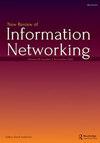发展中国家数字保存管理的相对优势
Q2 Social Sciences
引用次数: 4
摘要
本文的目的是探讨利益相关者对发展中国家,特别是非洲国家传统遗产管理方法中数字保存管理的相对进步的看法。从加纳的背景下具体的例子被用来帮助理解影响数字保存管理创新的相对优势的特定因素。这篇文章基于一项博士研究的结果,该研究探索了影响加纳数字文化遗产资源管理和保护的环境因素,并以罗杰斯的创新扩散模型为基础。采用解释性定性方法,通过半结构访谈征求来自加纳13个机构的29个关键利益相关者的观点。随后是对相关文献的分析,以确定加纳背景下的发现与非洲其他发展中国家的关系。利益相关者认为,与其他传统的遗产信息管理和保存方式相比,数字化保存管理创新在许多方面具有相对优势,包括:作为管理文化遗产资源的有效手段;加强协作和资源共享;有助于建立强大的文化机构;为发展中国家建立国家数字存储器;作为一种有效的手段,在数码未来长期保存文化身份的价值;促进文化知识的研究和进步。文献分析的结果还表明,数字保存管理(DPM)创新的这些相对优势在非洲其他发展中国家也以类似的形式出现。建议在其他发展中国家进行进一步的实证研究,以充分确定DPM创新相对于传统遗产资源管理和保护方法的主要相对优势。本文章由计算机程序翻译,如有差异,请以英文原文为准。
Relative Advantages of Digital Preservation Management in Developing Countries
ABSTRACT The purpose of this article is to explore stakeholders’ perspectives on the relative advances of digital preservation management over traditional heritage management approaches in developing countries, particularly in Africa. Specific examples from the context of Ghana are used to help understand the particular factors that influence the relative advantage of the digital preservation management innovation. The article is based on the findings of a PhD study that explored contextual factors influencing the management and preservation of digital cultural heritage resources in Ghana and it is underpinned by Rogers’ Diffusion of Innovation model. An interpretive qualitative approach was employed to solicit the perspectives of 29 key stakeholders from 13 institutions in Ghana through semi-structure interviews. This was followed by an analysis of relevant literature to ascertain how the findings from the context of Ghana relate to other developing countries in Africa. Stakeholders perceive that the digital preservation management innovation has relative advantages over other traditional ways of managing and preserving heritage information in many ways, including; as an effective means to manage cultural heritage resources; enhancing collaboration and resource sharing; contributes to the building strong cultural institutions; leading to the establishment of a national digital memory for developing countries; as an effective means to preserve value of cultural identity for the long term into the digital future; and enabling research and advancement of cultural knowledge. Findings from the literature analysis also show that these relative advantages of the digital preservation management (DPM) innovation occur in similar forms in other developing countries in Africa. Further empirical studies in other developing countries are recommended to fully ascertain the main relative advantages of the DPM innovation over traditional approaches of heritage resources management and preservation.
求助全文
通过发布文献求助,成功后即可免费获取论文全文。
去求助
来源期刊

New Review of Information Networking
Social Sciences-Education
CiteScore
2.10
自引率
0.00%
发文量
2
期刊介绍:
Information networking is an enabling technology with the potential to integrate and transform information provision, communication and learning. The New Review of Information Networking, published biannually, provides an expert source on the needs and behaviour of the network user; the role of networks in teaching, learning, research and scholarly communication; the implications of networks for library and information services; the development of campus and other information strategies; the role of information publishers on the networks; policies for funding and charging for network and information services; and standards and protocols for network applications.
 求助内容:
求助内容: 应助结果提醒方式:
应助结果提醒方式:


